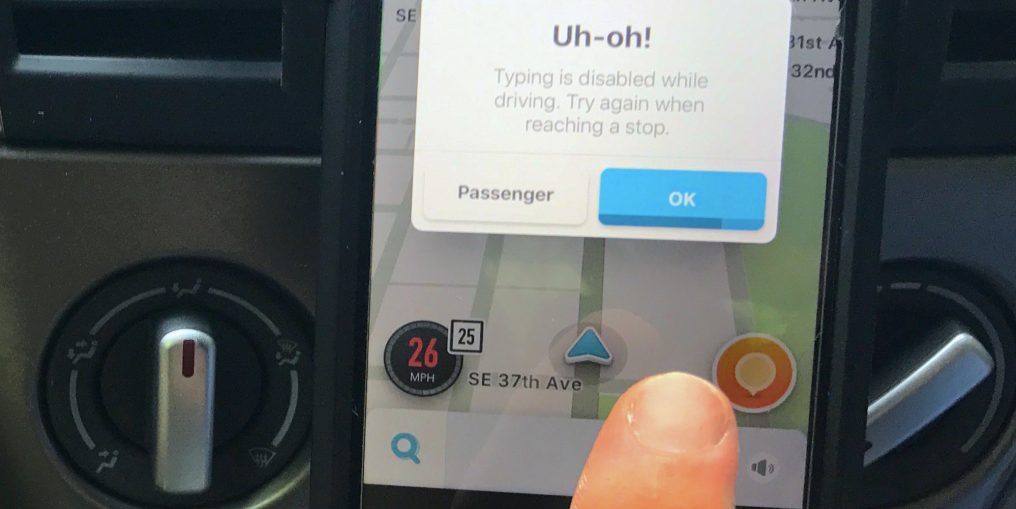Matthew Wiggins casually turns his attention away from the road, typing in a new destination into the Waze app on his phone. The app’s built in GPS knows the vehicle is moving, so it asks him to confirm he is the passenger, before allowing him to proceed.
“The first couple times I got that prompt, I actually read the question and wanted to get it right, like it was a test. I was not the passenger, so I didn’t select that.”
The app has since conditioned Wiggins to always select “Passenger”.
“It’s like I’m not even answering a question anymore. I know that ‘passenger’ means I can proceed and “OK” means I cannot proceed. So I select ‘Passenger’.”
Wiggins is tech savvy enough to know that an upgrade to fix this flaw must be right around the corner.
“The app is smart enough to know the car is moving… but it doesn’t know which seat I’m in? Until they come up with a fix, I’m going to continue to exploit this loophole.”
Waze app developers are currently working on some promising solutions, including, asking a question only the passenger would know the answer to, before allowing the user to proceed.

